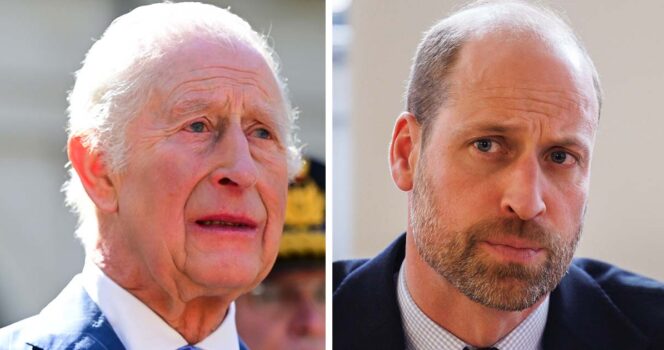Some royal commentators have suggested that Prince William may never directly inherit the throne from his father, as King Charles has little intention of abdicating despite his ongoing health issues. While the idea of a sudden transition to William is intriguing to many, experts argue that Charles has waited his entire life for this role and would be extremely reluctant to step aside voluntarily.
When Queen Elizabeth II passed away in 2022, the nation and the wider world were shaken, even though she had reigned for over seventy years. During that time, Prince Charles had been preparing for the throne since birth, making him arguably one of the most well-prepared monarchs in history. By the time he finally ascended, however, the shadow of cancer cast doubt on what many expected to be a strong and stable reign.
Charles was already seventy-three years old when he became king. Although he has maintained a positive spirit in public, his illness has inevitably sparked speculation about whether he might one day abdicate. Some argue that doing so could be in the best interest of both the monarchy and the nation, as it would allow him to prioritize his health and recovery while ensuring continuity of leadership through William.
On the other hand, many sympathize with the king’s desire to hold onto the position he has awaited for decades. Abdication would mean relinquishing the ultimate role he has spent his life preparing for, something few could imagine him surrendering lightly. Even those close to him admit that Charles struggles internally with the balance between duty and the natural limitations imposed by his condition.
Sources close to the royal household have revealed that Charles has accepted his reign may be shorter than originally hoped. Reportedly, he has already begun adjusting to the idea that certain royal ambitions and projects may have to be left to William. His doctors have advised him to reduce his workload, and while he continues to fulfill many obligations, there is recognition that his pace must inevitably slow.
As Charles pulls back slightly, William has been stepping forward. The Prince of Wales has quietly taken on more duties, representing his father at public events and preparing for the role of monarch earlier than expected. Alongside Catherine, Princess of Wales, he has been laying the foundations for their eventual leadership, even while managing personal family challenges.
Despite this transition of responsibility, experts insist that abdication would be highly unlikely. The Royal Family is built on tradition, and abdication has historically been seen as destabilizing. The last major abdication, by Edward VIII in 1936, caused a constitutional crisis that the monarchy has no wish to repeat. For Charles, stepping down would not only feel like a betrayal of duty but also a break with the example set by his late mother, who reigned until her final days.
At the same time, Charles has sought to modernize the monarchy in his own way, signaling that even an older monarch can adapt to a changing world. His openness in disclosing his cancer diagnosis marked a major departure from the secrecy of past generations. This willingness to share personal health struggles is seen by some as ushering the monarchy into uncharted territory, where transparency and human vulnerability are becoming part of royal life.
Observers note that this more candid approach reflects broader efforts by both Charles and William to reshape the monarchy for the future. While no one can predict exactly how the institution will evolve, there is a clear desire to balance respect for tradition with the demands of a modern, media-driven society. The younger royals, particularly William and Catherine, are expected to continue this trend of gradual modernization once they ascend.
Ultimately, most royal experts agree that Charles will cling to his role for as long as his health allows. While William is ready to take on the throne whenever necessary, it is widely believed that Charles will not abdicate willingly. Having waited over seventy years for this responsibility, the king views it as his sacred duty to serve until the end, just as his mother did before him.
